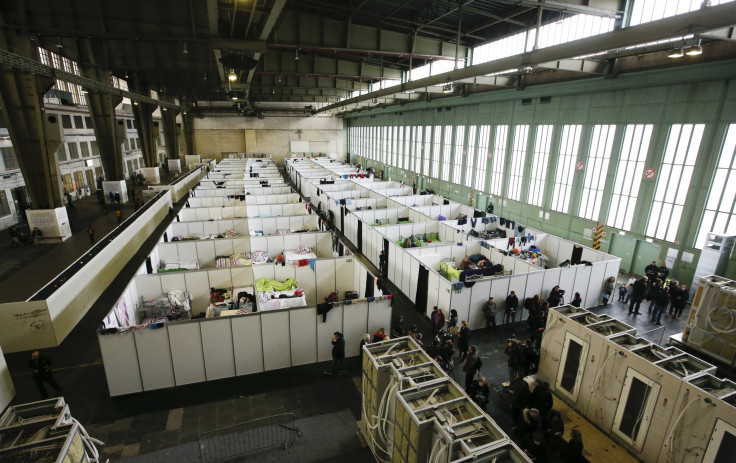Europe Refugee Crisis: Germany Debates Housing In Airports And Cemeteries As Possible Solutions

With the arrival last year of more than 1 million refugees in Germany and thousands more entering this month, local authorities have been getting creative about housing accommodations for the growing number of asylum-seekers. Officials were debating turning the defunct Berlin Tempelhof airport into a massive refugee facility that would house 7,000 people for up to three years, the Local reported Friday.
But not all residents want to see the iconic airport known as the site of the 1948-49 Berlin airlift transformed into a shelter. A 2014 referendum prevents any large-scale development at the facility. Providing accommodation to asylum-seekers has forced municipalities to consider options such as school gyms, hotels, army facilities, portable container homes and empty warehouses. Construction was stopped in Cologne this week following the revelation of plans to build housing on the grounds of a cemetery.
Germany is planning to build 290,000 apartments this year. However, experts say more than 400,000 units are needed to meet increasing demand. The government has introduced tax incentives to entice private investors to construct apartment buildings.
The airport and cemetery cases are just the latest housing struggles as German and European politicians debate how to handle the large influx of refugees fleeing conflicts and repressive states including Syria, Afghanistan and Iraq. Speaking Friday at the World Economic Forum in Davos, Switzerland, French Prime Minister Manuel Valls stressed the EU could not admit all refugees fleeing wars in Syria and Iraq.
“Otherwise, our societies will be totally destabilized,” Valls argued. “If Europe is not capable of protecting its own borders, it’s the very idea of Europe that will be questioned.”
Valls remarks come only two days after German President Joachim Gauck said limiting the number of refugees entering Germany was likely the result of increasing pressure on German Chancellor Angela Merkel to reverse her open arms refugee policy, which would mark a major turnaround.
Austrian Foreign Minister Sebastian Kurz said Friday his country’s plan to limit the number of refugees crossing its borders should be a “wake-up call to Brussels.”
“I believe in the long-term there is a European solution. But until it has been reached, we have to protect ourselves,” Kurz said.
© Copyright IBTimes 2024. All rights reserved.





















